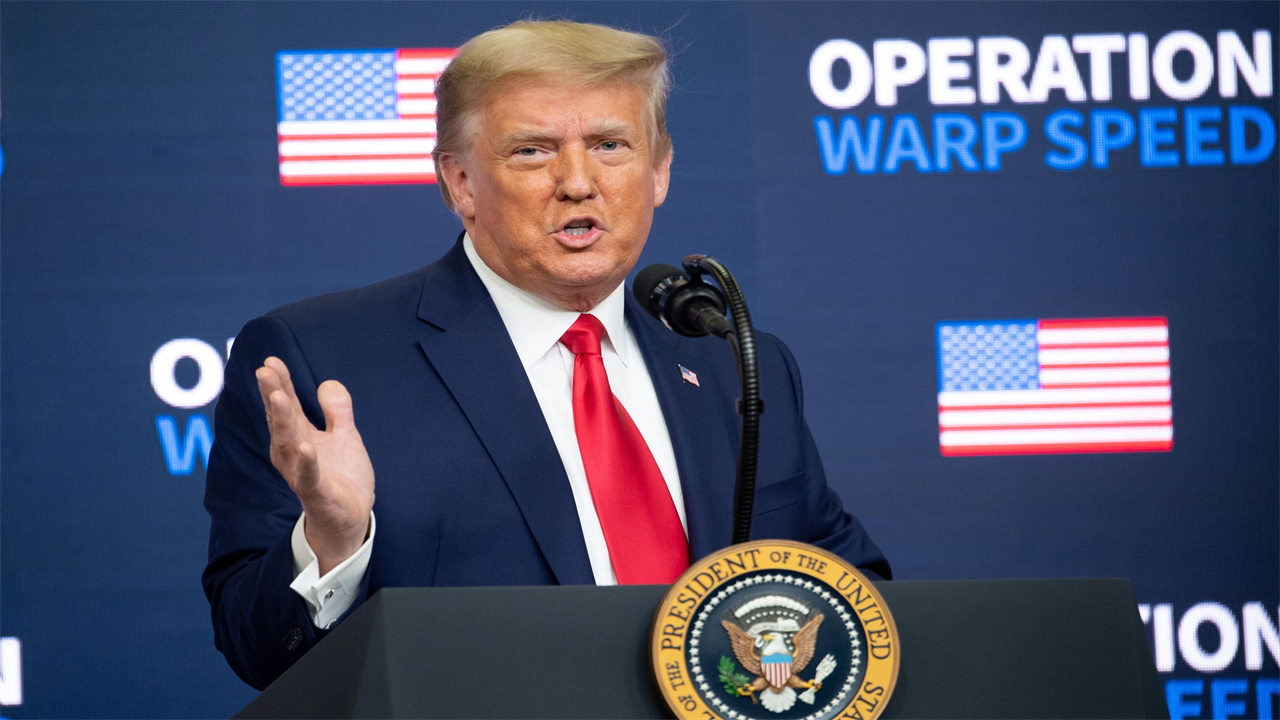Early COVID-19 Vaccine Campaign in US Prevented 3 Million Cases and 140,000 Deaths
0 View
Share this Video
- Publish Date:
- 18 August, 2021
- Category:
- Covid
- Video License
- Standard License
- Imported From:
- Youtube
Tags

In this December 8, 2020 photo, US President Donald Trump speaks during the Operation Warp Speed Vaccine Summit in the Eisenhower Executive Office Building next to the White House in Washington, DC. Operation Warp Speed (OWS) is a public-private partnership initiated by the United States government to facilitate and accelerate the development, production and distribution of COVID-19 vaccines, therapies and diagnostics. Operation Warp Speed first made headlines on April 29, 2020 and was officially announced on May 15, 2020. Credit: VOA
More than 3 million cases of COVID-19 prevented by early vaccines.
The early COVID-19 vaccination campaign in the US has prevented nearly 140,000 deaths and 3 million cases of COVID-19 in the second week of May, according to a new study.
As a result of early vaccination efforts, there were five fewer deaths from COVID-19 per 10,000 adult residents in the state average. The study estimates the number of lives saved during the first five months of the vaccination campaign in each of the 50 states and Washington, DC.
Adjusted for population size, New York saw the largest estimated decline, with 11.7 fewer COVID-19 deaths per 10,000 adult residents. Hawaii recorded the smallest decrease, with 1.1 fewer COVID-19 deaths per 10,000 adult residents.
The study, published online by the journal Health Affairs, is one of the first to assess the effects of state-level vaccination campaigns in tackling the COVID-19 pandemic.
“This study highlights the dramatic success of the early months of the coronavirus vaccine rollout in the country,” said Christopher Whaley, senior author of the study and policy researcher at RAND, a nonprofit research organization. “The findings provide support for policies that further expand vaccine delivery so that a greater proportion of the country’s population can benefit.”
The coronavirus pandemic has caused immense suffering, with more than 4.3 million deaths worldwide and more than 600,000 in the US. The number of cases and deaths has fallen sharply since the start of vaccination programs.
Researchers from RAND and Indiana University have created models to estimate the number of COVID-19 deaths that would have predominated without vaccinations. The difference between the actual number of deaths and those estimates provides a measure of the number of COVID-19 deaths prevented by the vaccination campaign.
Information on vaccine doses administered in each state came from the Bloomberg COVID-19 Vaccine Tracker, and data on COVID-19 deaths for each state came from The New York Times’ Coronavirus (COVID-19) data in the database of the United States. The survey covered the period from December 21, 2020 to May 9, 2021.
The progress of vaccination at the state level varied over time. Alaska was the first to reach 20 doses per 100 adults on January 29, 2021, while Alabama was the last on February 21, 2021. On May 6, 2021, California was one of the first to reach 120 doses per 100 adults, and many states still have that milestone. not reached.
The economic value of the lives saved during the study period is estimated to be between $625 billion and $1.4 trillion. By the end of 2020, the US federal government had allocated $13 billion for the development and production of vaccines.
“Our results suggest that further efforts to vaccinate populations worldwide and in a coordinated manner are critical to better control the COVID-19 pandemic,” said Sumedha Gupta, lead author of the study and an economist at Indiana University. Purdue University Indianapolis.
Reference: August 18, 2021, Health Affairs.
DOI: 10.1377/hlthaff.2021.00619
The study was supported by the National Institutes on Aging. Other authors of the study are Jonathan Cantor of RAND, and Kosali I. Simon, Ana I. Bento and Coady Wing, all of Indiana University.
RAND Health Care promotes healthier societies by improving health care systems in the United States and other countries.










